Title : Remote Music Rehearsals
Project Lead : Magas Michela From : Michela (None)
Dates : from 2014-10-09 16:02:44 to 2015-02-03 17:24:30
Description :
Motivation and objectives :
Nowadays on sound and music productions there are involved a heterogeneous kind of actors, from producers to musicians and sound engineers. The classical production model is evolving in different ways: cutting-edge editing software, more powerful hardware supporting production and capacity to share huge data files, etc. Following this trend, the way producers and musicians work and cooperate is also changing. Thanks to several international initiatives and projects the musical creative industry is now aware of the possibilities that offer advanced networks. One use case is the distributed music rehearsal. Some musicians collaborate with other artists from abroad using software that does not deliver the necessary features. As interaction between musics that are not in the same locations can be very expensive (e.g.: transportation, accommodation and other expenses, etc.) or of very low quality of service (e.g.: not enough audio quality and low quality communication among both venues) it is necessary to find reliable and user-friendly (for non technical professionals) solutions. Stromatolite is proposing in this project to conduct musical rehearsals in a distributed manner under Musical Tech Fest in Berlin October 24-26, connecting musicians and artists in different music rehearsal facilities to allow them to interact and create. The main objectives are: To enable interaction between distributed musicians. To design, setup and test a prototype a video conference system for music rehearsal. Implement an hybrid solution delivering Ultra Low Latency Video and Very High Audio connection. To devise new solutions that opens the access to advanced technologies and infrastructures. Validate from both technical and user experience perspective the solution proposed. It is important to highlight that market offers solutions that could be adapted to musicians needs, but most of them are inaccessible to most of the users. For this reason, this project seeks to deliver alternatives to expensive systems or low quality solutions.
Teams :
Stromatolite has been awarded the UK Technology Strategy Board: Collaboration in Digital Industries; the EU FP7 award for MIReS: the future of music tech; the UK Technology Strategy Board award for Open Product Licenses; the EU FP7 award for ICT&ART; and the 'art meets science' NEMart award for Songlines (Barcelona 2010) and Synaesthesia (Istanbul 2012). Stromatolite was selected for the Make It in Great Britain exhibition at the Science Museum, showcasing the best of British manufacturing and innovation during the London Olympics.
Dates :
starting date : 20 October, 2014
ending date : 27 October, 2014
Facilities descriptions :
http://visionair-browser.g-scop.grenoble-inp.fr/visionair/Browser/Catalogs/DML.SP.html
Recordings & Results :
This TNA wants to validate a software based solution for the music sector, that supports the music producing industry (especially small and medium producers) to work with other professionals (e.g.: other music producers, engineers, creatives, musicians and clients) in a distributed and highly collaborative manner. Stromatolite is proposing in this project to conduct musical rehearsals in a distributed manner under Musical Tech Fest in Berlin October 24-26, connecting musicians and artists in different music rehearsal facilities to allow them to interact and create. The main objectives are: - To enable interaction between distributed musicians. - To design, setup and test a prototype a videoconference system for music rehearsal. - Implement a hybrid solution delivering Ultra Low Latency Video and Very High Audio connection. - To devise new solutions that opens the access to advanced technologies and infrastructures. - Validate from both technical and user experience perspective the solution proposed. It is important to highlight that market offers solutions that could be adapted to musicians needs, but most of them are inaccessible to most of the users. For this reason, this project seeks to deliver alternatives to expensive systems or low quality solutions. This TNA aims to demonstrate the distributed music rehearsals use case. Some musicians collaborate with other artists from abroad using software that does not deliver the necessary features. As interaction between musicians that are not in the same locations can be very expensive (e.g.: transportation, accommodation and other expenses, etc.) or of very low quality of service (e.g.: not enough audio quality and low quality communication among both venues) it is necessary to find reliable and user-friendly (for non-technical professionals) solutions.
Conclusions :
It is important to highlight that there are similar initiatives facing this question, but none of them have provided definitive solutions adopted by creative profiles nor musicians. Another relevant item is that the following examples only transmitted video point-to-point, without live mixing features. This scenario represents a distributed video edition scheme, where different distributed sources transmit its streams to the same AVMixer. This AVMixer is responsible for mixing all the streams and transmitting the result stream to all the sources. Moreover, the AVMixer can capture video streams from IP cameras and use it in the mixing process too. AVMixer can be managed remotely accessing to its web GUI using a browser. There, any user can control the mixing process using implemented functionalities such as cuts, fades, grids and effects. In this sense, previous initiatives have only implemented a point-to-point A/V connection between sites to provide an immersive window for communication between music rehearsal rooms. Our scenario is distinctive by allowing to each musician to select between all the video streams captured in all the extreme nodes. So, from a technical point of view our scenario is characterized by providing a screen that contains a matrix with all the video streams from all the sites. Thus, each distributed musician will be allowed to personalize the screen they view by selecting between remote musicians video streams. So, this change of view needs to be switched in real-time as well as in an easy and fast way (i.e. shortcuts, mouse-clicks, ). REMUR is focused on the idea of creative technologies or technologies at the service of musicians. The platform used to provide immersive audio visual between nodes is called Distributed Media Platform (DMP). Several software modules compose the distributed platform. These modules could be combined to provide a distributed environment for music creation. At technical and infrastructural level, the achievements were: - The definition of minimum threshold requirements for typical network parameters (i.e.: delay, losses, bandwidth). - The definition of a hybrid solution for the network topology required (centralized for video and mesh for audio). - The deployment of a scalable system which is able to increase the number of inputs and outputs as a function of the hardware specifications of the mixing system and the network. - The improvements of the used tools and the new features proposals (e.g.: switching methods of video camera views, new mixing tools). - The validation of the tools and the whole concept with real users in real scenarios. Finally, as a conclusion for scientific and engineering merits, a new system prototype for distributed performances, high sound quality transmission and video-conferencing systems and distributed recording has been designed, evaluated and validated. Music Tech Fest is an event pulling the entire music technology ecosystem under one roof from the big guys in the music industry and media, music tech startups and apps creators, to developers, artists, performers, researchers, creatives and hackers. This festival of ideas aims to mix performances and presentations, demos and installations in order to stimulate the development of innovative new projects and unlikely, thrilling collaborations. After a series of successful events in New Zealand, Boston and London Music Tech Fest is heading to Berlin. This edition will be held from the 24th to the 26th of October, 2014 and will be packed with performances, demonstrations and presentations from artists, technologists, entrepreneurs, academics and ideas people. i2CAT will participate in this festival providing technology in order to conceptualize new music ideas. Moreover, an Internet-assisted artistic performance will be presented on stage: a piece of music will be played live by musicians located both in Barcelona and Berlin. In order to interact with the music ecosystem as a whole (artists but also SMEs, researchers and hackers) the project participated in Music Tech Fest, an international, itinerant event stimulating artists to play with new technologies and share results with a large range of different stakeholders. i2CAT attended the Berlin edition of the festival, held in Germanys largest city from the 24th to the 26th of October, 2014. A large audience took part in this event, characterized by high-quality performances/demos and a truly collaborative atmosphere. Live streaming guaranteed people to follow the 3-day event on the Music Tech Fest website. i2CAT and Stromatolite proposed two Internet-assisted artistic performances on Saturday and Sunday. Steve Lawson, a notorious British bassist performed with 2 young artists participating in the event: Karl Pannek from Germany and Ross Flight from UK. These artists produced an inspiring and highly appreciated performance using the i2CAT HD videoconferencing system and playing together from 2 different locations. In addition to this, the project participated in the Hack Camp, a 24-hour collaborative laboratory where hackers, programmers and DIY electronics enthusiasts teamed up with artists to develop innovatory music forms. The i2CAT's technology was proposed to participants both in Berlin and online: a first positive contact was in fact established with hackers connected from Boston, US. The best hack was awarded on stage: Karl Pannek won a trip to France to participate in Music Tech Fest Paris (November 2014) and perform with his all-new musical instrument during the festival.
Project Images :
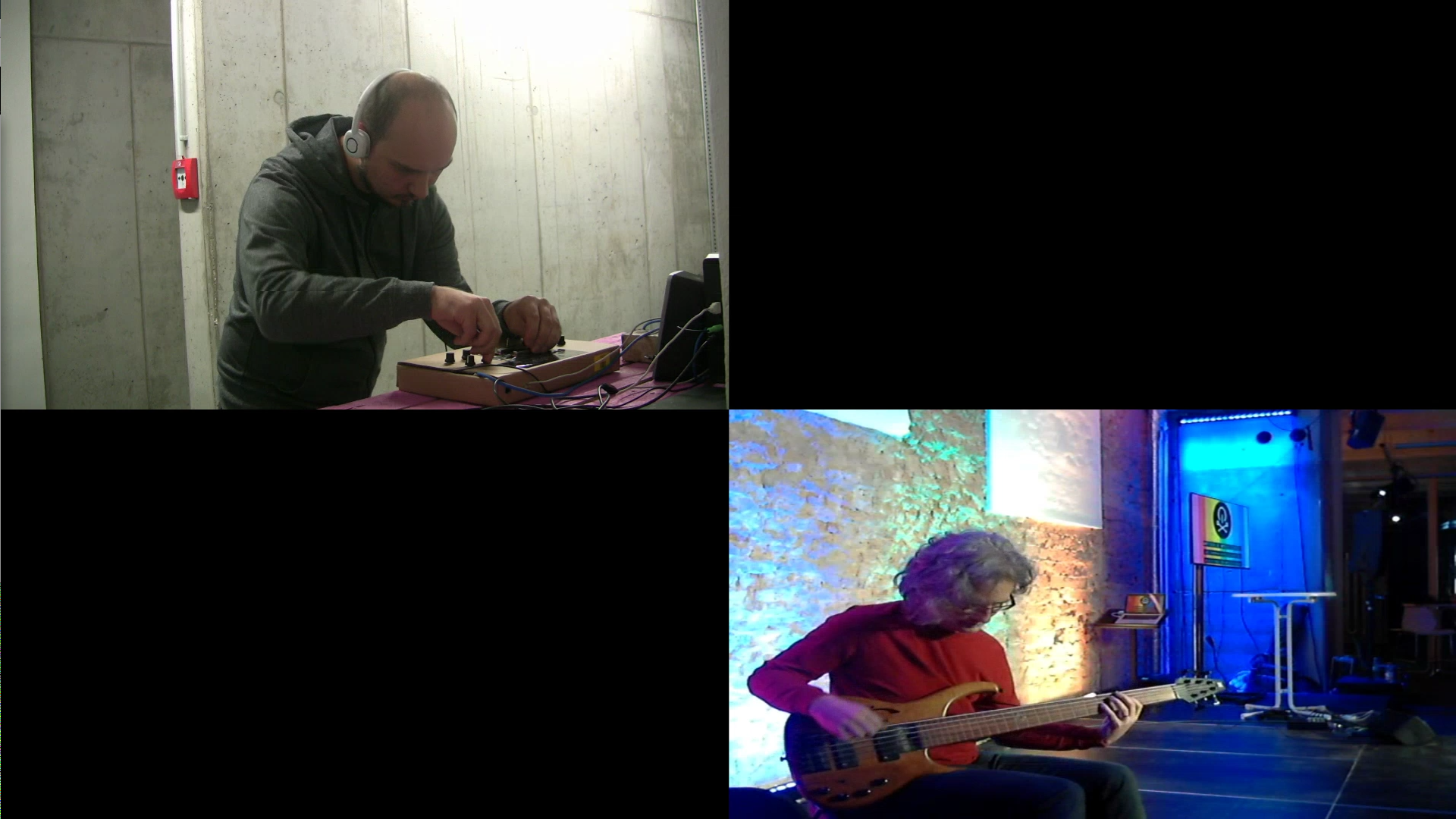

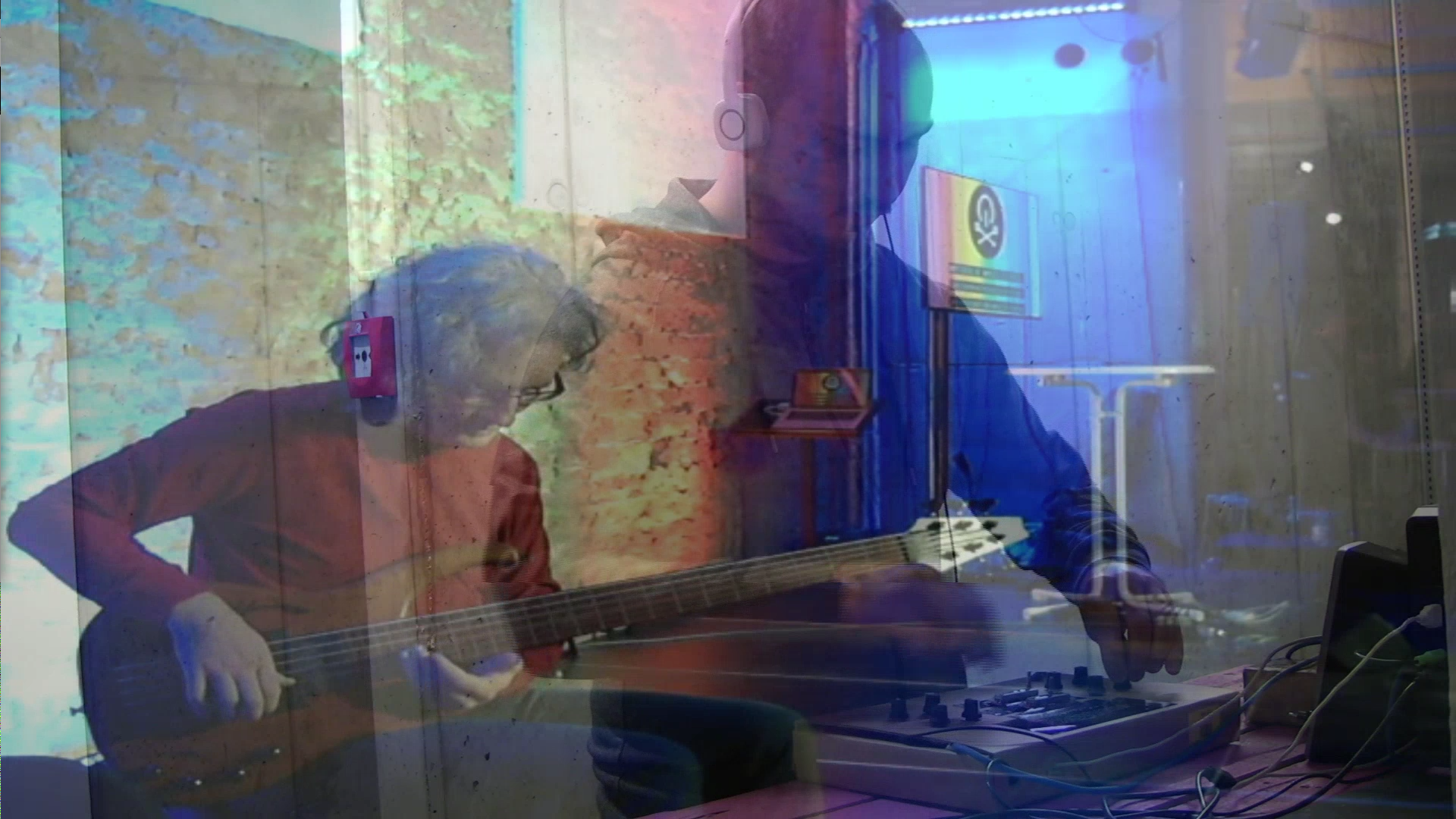
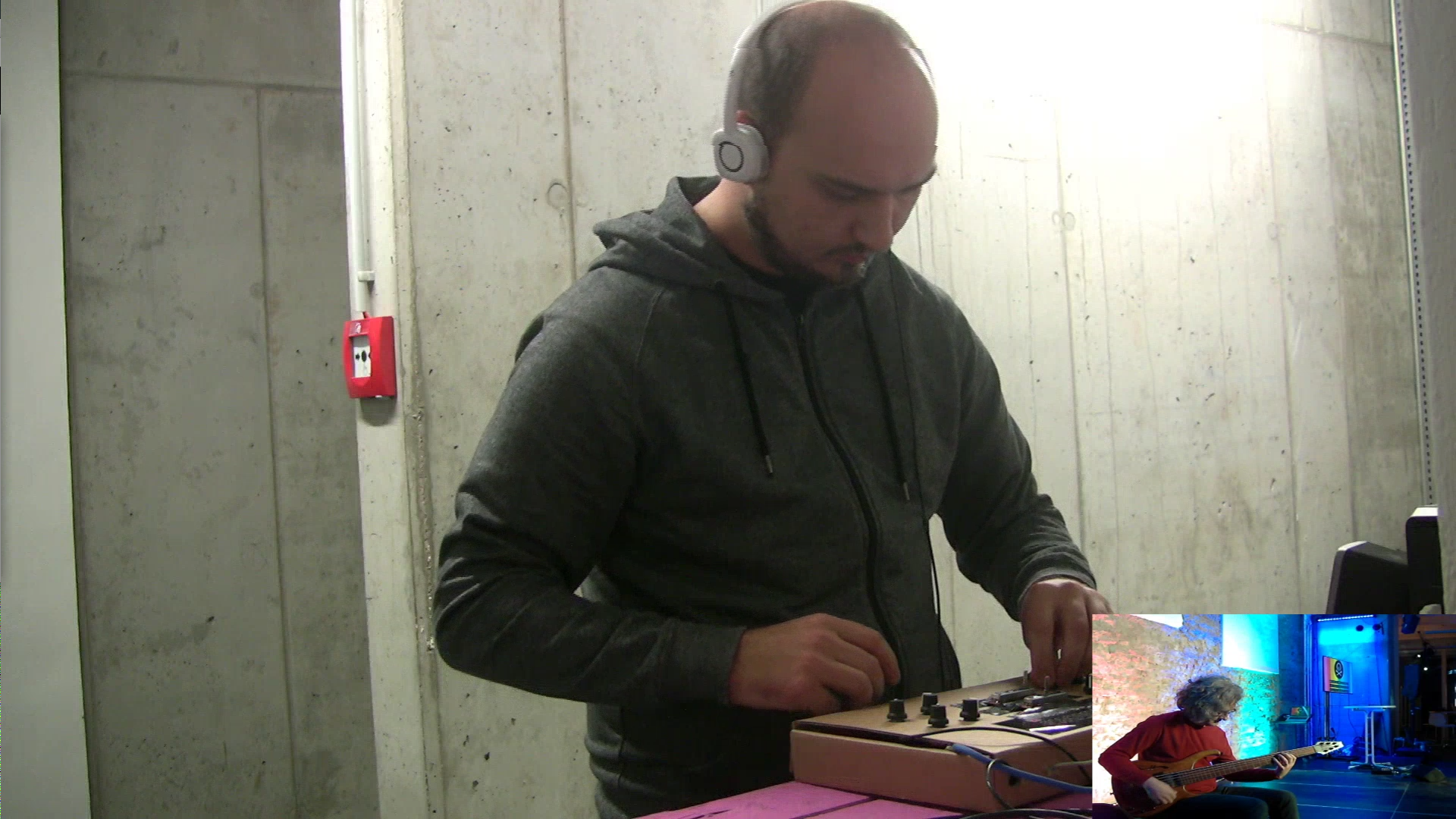
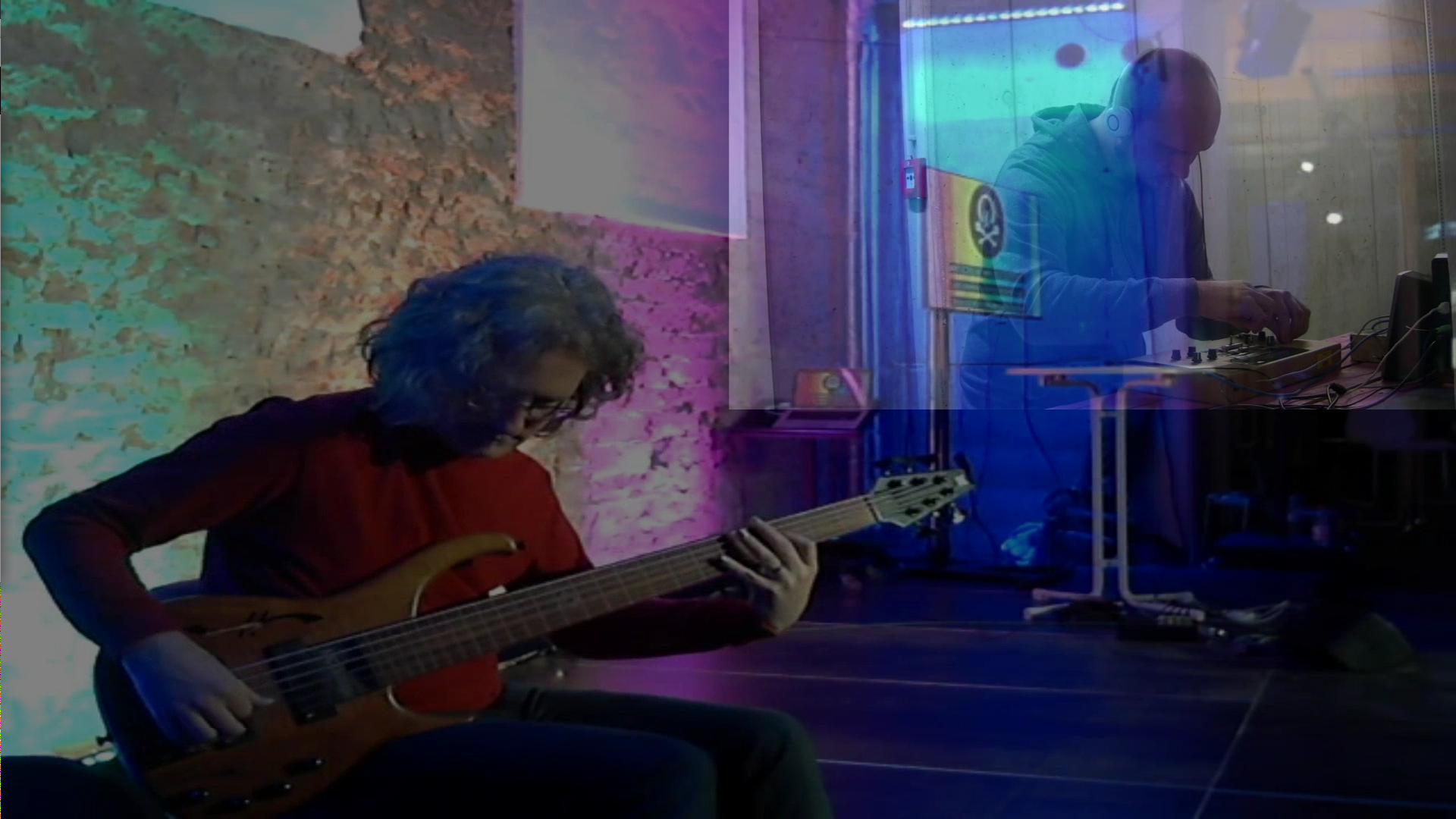
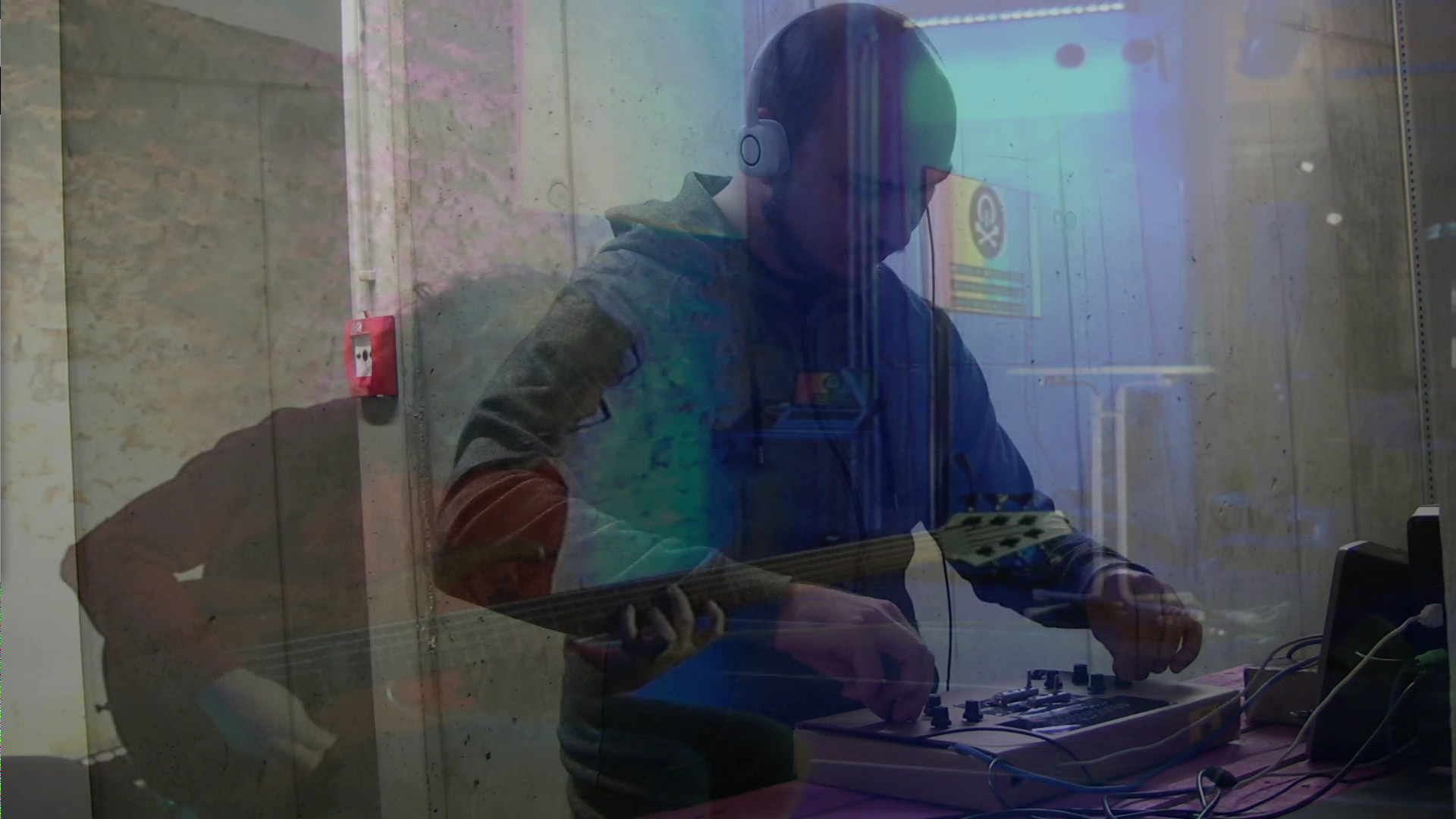

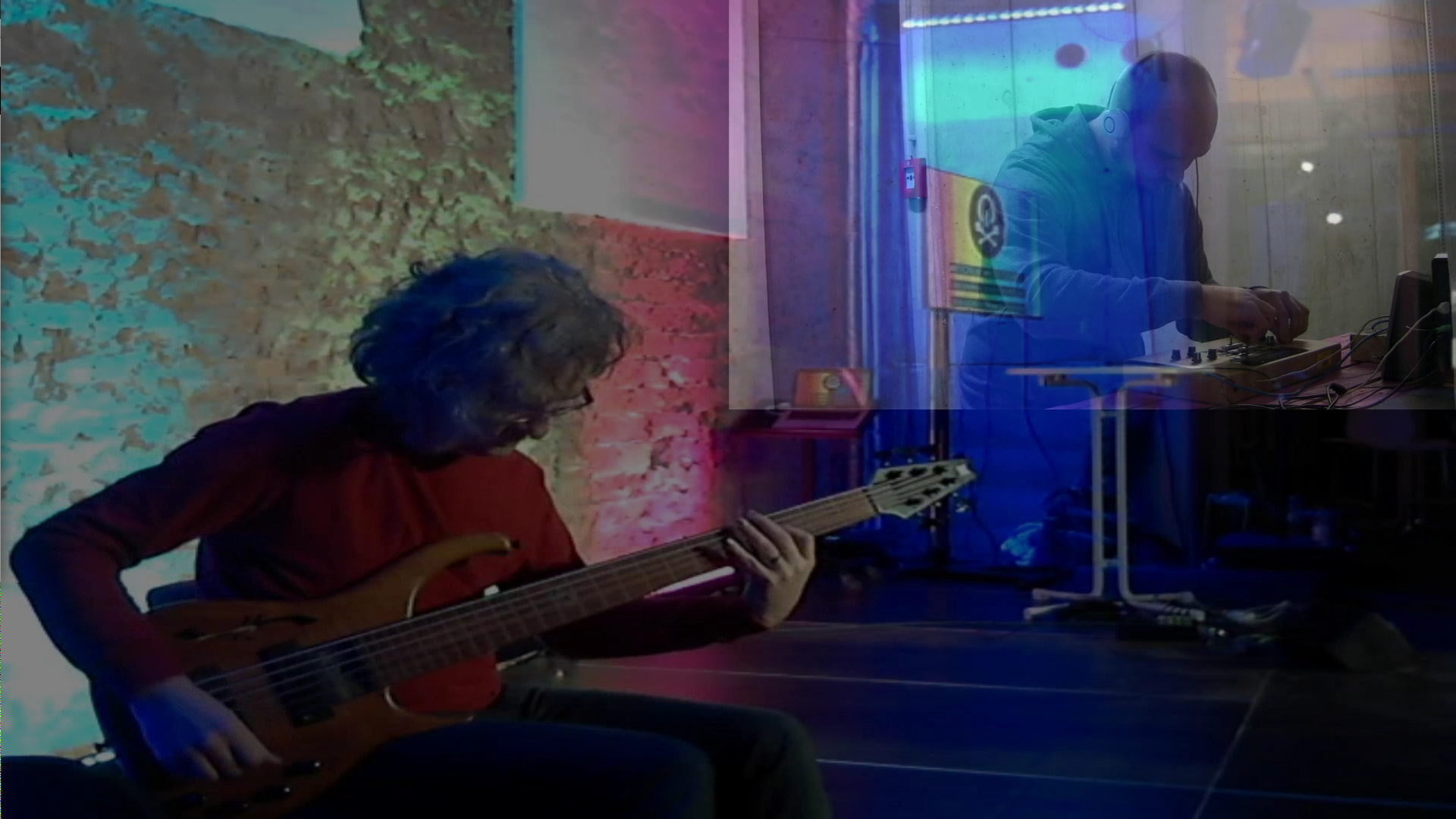
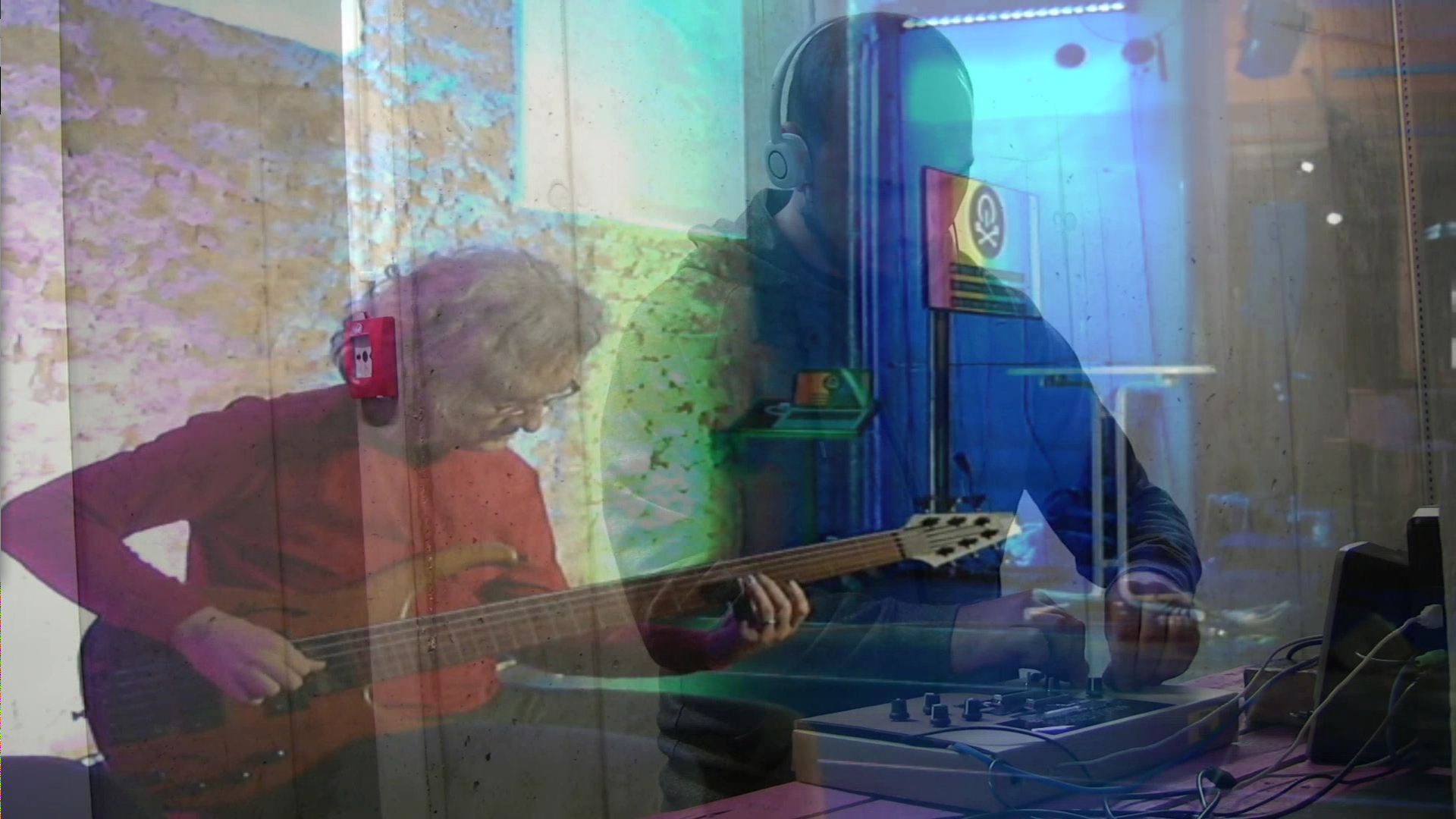
Other project resources :
mtf.mp4
MTF-Berlin-Videos-i2CAT-4.mp4
MTF-Berlin-Videos-i2CAT-1.mp4
MTF-Berlin-Videos-i2CAT-3.mp4
MTF-Berlin-Videos-i2CAT-2.mp4
.

VISIONAIR / Grenoble INP / 46 avenue Felix Viallet / F-38 031 Grenoble cedex 1 / FRANCE
Project funded by the European Commission under grant agreement 262044

Project funded by the European Commission under grant agreement 262044
